Kirstie Alley’s career spanned decades, marked by iconic performances, personal triumphs, and a lasting impact on television and film. From her unforgettable role in Cheers to her candid battles with personal challenges, Alley’s story is one of resilience and reinvention. This article explores the life and legacy of the Emmy Award-winning actress who captured hearts and laughter worldwide.
Early Life and Challenges
Kirstie Louise Alley was born on January 12, 1951, in Wichita, Kansas, the youngest of three siblings. From a young age, she exhibited a natural charisma, and it wasn’t long before she began considering a future in the entertainment industry. Alley attended Kansas State University before moving to California, where she initially embarked on a career as an interior decorator.
However, her early years in Los Angeles were marked by personal struggles, particularly with substance abuse. These challenges were compounded by a tragic event in 1981 when her parents‘ car was struck by a drunk driver, resulting in the death of her mother and severe injuries to her father. This devastating incident became a pivotal moment in Alley’s life. She sought treatment for her addiction and found support in Scientology, which she credited for helping her regain control over her life.
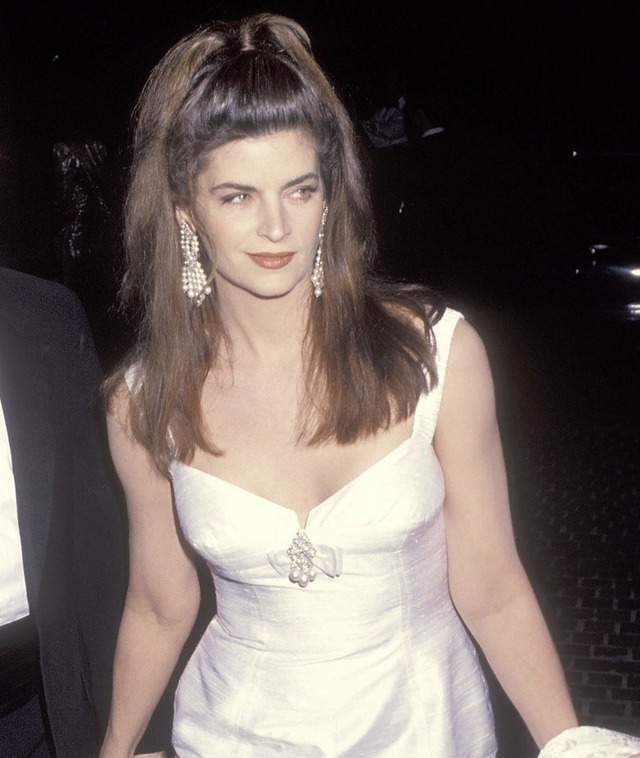
Breaking into Hollywood
Alley’s path to stardom began in the early 1980s with appearances on popular television game shows such as *Match Game* and *Password Plus*. It was in 1982, however, that she made her feature film debut in *Star Trek II: The Wrath of Khan*, portraying the character Saavik, a Vulcan Starfleet officer. Her performance was a testament to her versatility and set the stage for bigger opportunities in Hollywood.
Alley further solidified her place in the industry with her role in the miniseries *North and South* (1985), where she impressed both critics and audiences. While these early roles laid the foundation for her career, it wasn’t until the late 1980s that her rise to fame truly took off.
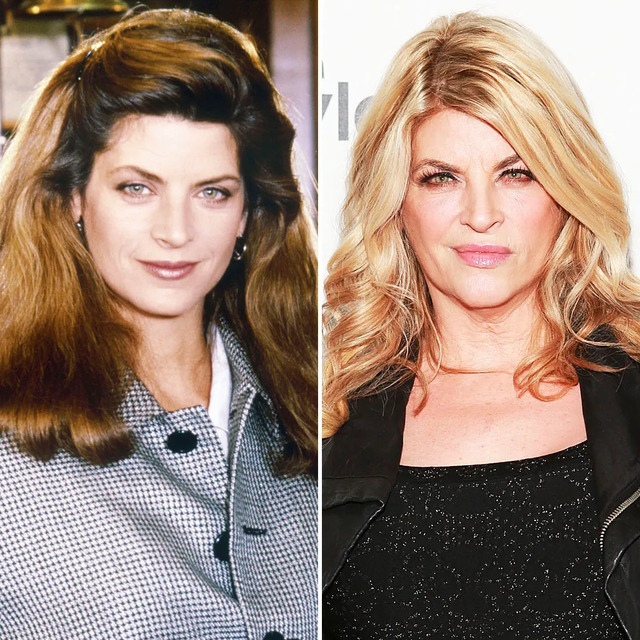
Stardom with Cheers
In 1987, Alley joined the cast of *Cheers*, a beloved sitcom that would become a cornerstone of television history. She replaced Shelley Long as Rebecca Howe, the neurotic and ambitious bar manager. Alley’s portrayal of Rebecca won her critical acclaim and won the hearts of viewers worldwide. In 1990, she was awarded both a Golden Globe and an Emmy Award for her outstanding performance on the show, cementing her place in television history.
Alongside her success on *Cheers*, Alley also pursued a film career. In 1988, she starred in the thriller *Shoot to Kill*, showing her ability to take on more dramatic roles. But it was the 1989 comedy *Look Who’s Talking*, co-starring John Travolta, that showcased her comedic timing and turned her into a box-office draw. These projects helped establish her as an actress who could balance both humor and depth, a quality that endeared her to audiences across the globe.

Post-Cheers Career
After *Cheers* concluded in 1993, Kirstie Alley continued to build her career. She won another Emmy Award for her role in the 1994 television movie *David’s Mother*, where she portrayed a woman caring for her autistic child. This heartfelt performance further proved her versatility as an actress.
In 1997, Alley starred in the NBC sitcom *Veronica’s Closet*, a comedy series where she played a successful businesswoman. Although the show received mixed reviews, Alley’s performance continued to demonstrate her comedic abilities. She also earned an Emmy nomination for her role in the miniseries *The Last Don* (1997), maintaining a steady presence on both television and film screens during the 1990s and early 2000s.
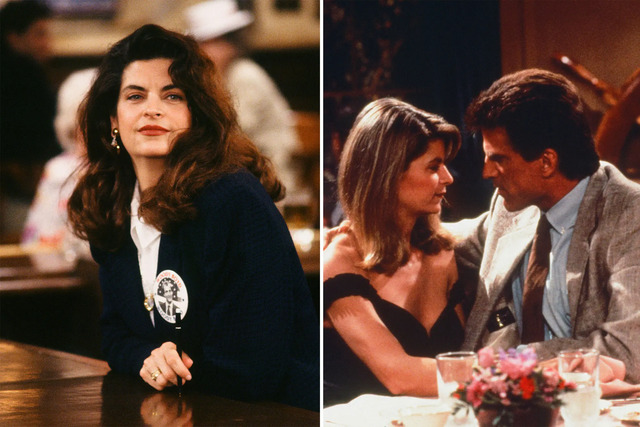
Struggles with Weight and Reinvention
In the early 2000s, Kirstie Alley became just as well-known for her candid discussions about her weight loss journey as for her acting. She starred in *Fat Actress* (2005), a semi-autobiographical Showtime series in which she explored Hollywood’s obsession with appearance. The show resonated with many, and Alley became an advocate for body positivity.
Her partnership with Jenny Craig further highlighted her openness about her weight struggles. Despite fluctuations in her weight, Alley was determined to regain control. She developed her own weight loss program, Organic Liaison, and in 2010, she shared her journey in the A&E reality series *Kirstie Alley’s Big Life*. Her transparency and determination made her a relatable figure to many of her fans who faced similar challenges.
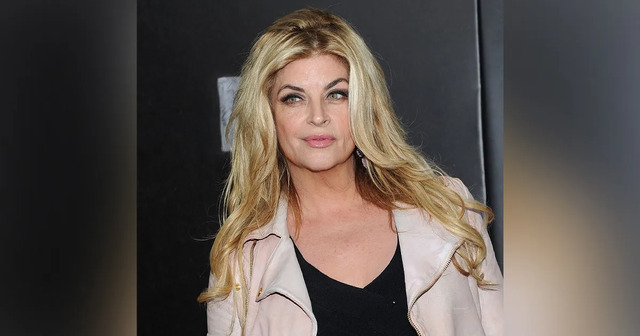
Later Projects and Reality TV
In the later stages of her career, Alley found success in reality television. In 2011, she competed on *Dancing with the Stars* and quickly became a fan favorite. Partnered with Maksim Chmerkovskiy, Alley finished as the runner-up, showcasing her resilience and determination. She returned for the *Dancing with the Stars* All-Star season in 2012, where she once again demonstrated her fearless approach to new challenges.
In addition to reality TV, Alley’s acting career continued with appearances in various television shows and films, but by then, her focus had shifted more toward personal endeavors and exploring new creative outlets.
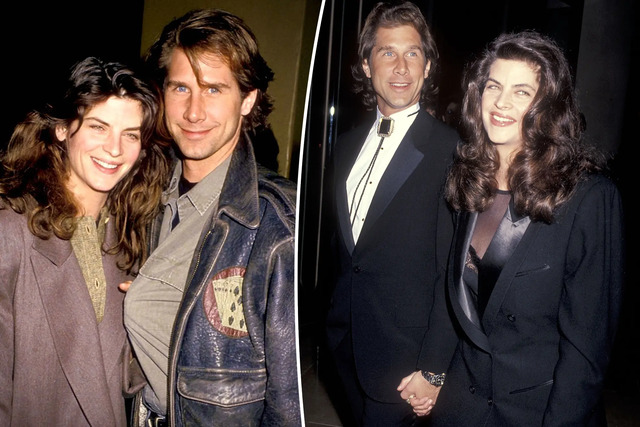
Personal Life and Legacy
Kirstie Alley’s personal life was a reflection of her multifaceted nature. She married actor Parker Stevenson in 1983, and the couple adopted two children, William True and Lillie Price. Although their marriage ended in divorce in 1997, Alley remained dedicated to her children, often speaking about her love for her family.
On December 5, 2022, Kirstie Alley passed away at the age of 71 following a brief battle with cancer. Her death marked the end of an extraordinary life, one filled with both triumphs and challenges. Despite her passing, her legacy in Hollywood and beyond remains strong. She will always be remembered for her unique blend of humor, resilience, and authenticity.
Conclusion
Kirstie Alley’s journey through Hollywood was far from ordinary. From her breakout role in *Star Trek II* to her award-winning portrayal of Rebecca Howe on *Cheers*, Alley’s career was marked by incredible versatility and a lasting impact on television and film. Beyond her professional achievements, her candidness in addressing personal struggles, including weight loss and addiction, made her a relatable and inspiring figure to millions.
Throughout her career, Alley proved time and again that she was not defined by her challenges but by her resilience and ability to reinvent herself. Her legacy will continue to inspire new generations of actors, fans, and individuals facing their own obstacles. Kirstie Alley’s story is one of triumph, humor, and inspiration that will forever remain a part of Hollywood’s rich history.




